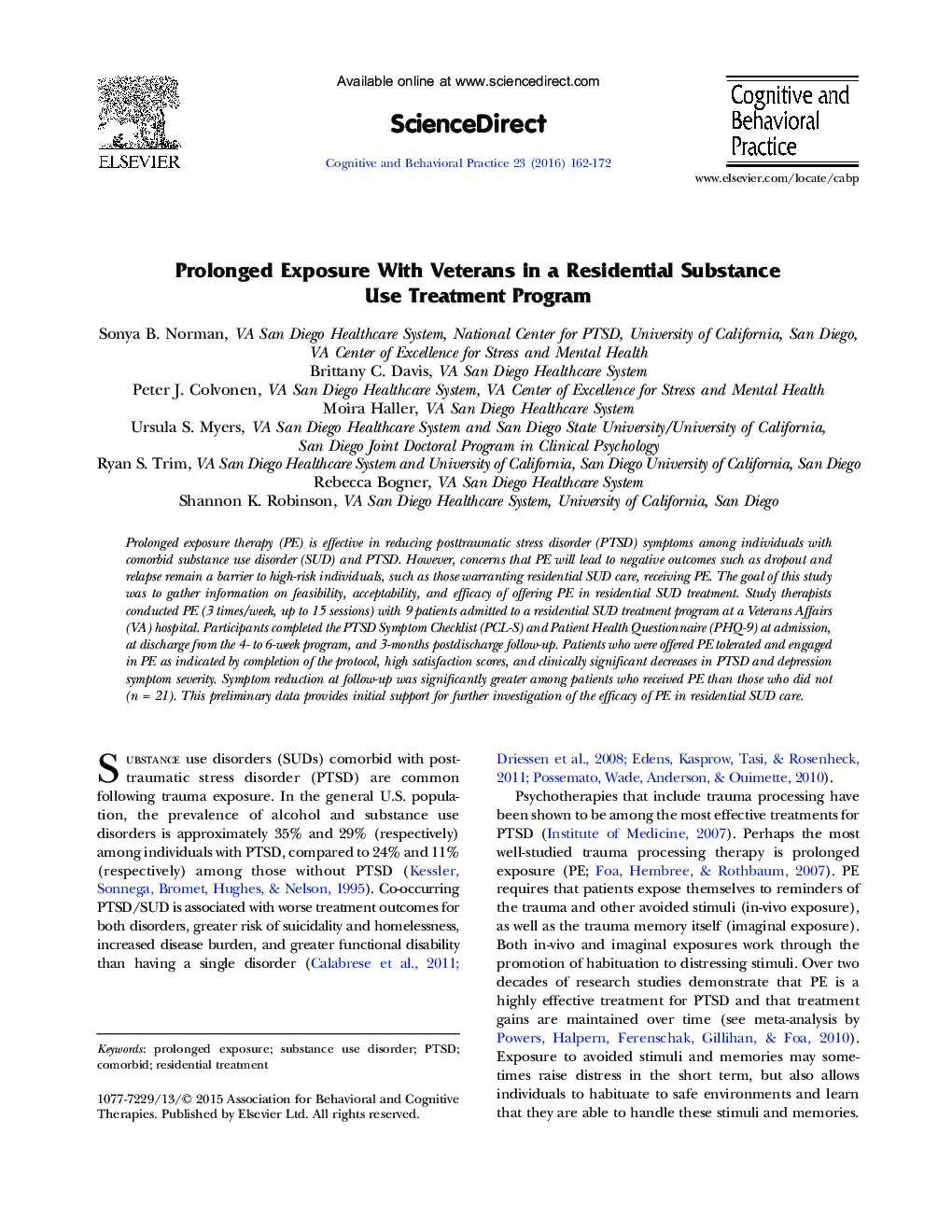| Article ID | Journal | Published Year | Pages | File Type |
|---|---|---|---|---|
| 904231 | Cognitive and Behavioral Practice | 2016 | 11 Pages |
•Having a substance use disorder can be a barrier to getting exposure therapy.•Exposure therapy is rarely available in residential substance use treatment.•We offered exposure to 9 patients in residential substance use treatment.•Patients completed treatment and PTSD and depression symptoms decreased.•Symptoms continued to decrease after program discharge.
Prolonged exposure therapy (PE) is effective in reducing posttraumatic stress disorder (PTSD) symptoms among individuals with comorbid substance use disorder (SUD) and PTSD. However, concerns that PE will lead to negative outcomes such as dropout and relapse remain a barrier to high-risk individuals, such as those warranting residential SUD care, receiving PE. The goal of this study was to gather information on feasibility, acceptability, and efficacy of offering PE in residential SUD treatment. Study therapists conducted PE (3 times/week, up to 15 sessions) with 9 patients admitted to a residential SUD treatment program at a Veterans Affairs (VA) hospital. Participants completed the PTSD Symptom Checklist (PCL-S) and Patient Health Questionnaire (PHQ-9) at admission, at discharge from the 4- to 6-week program, and 3-months postdischarge follow-up. Patients who were offered PE tolerated and engaged in PE as indicated by completion of the protocol, high satisfaction scores, and clinically significant decreases in PTSD and depression symptom severity. Symptom reduction at follow-up was significantly greater among patients who received PE than those who did not (n = 21). This preliminary data provides initial support for further investigation of the efficacy of PE in residential SUD care.
